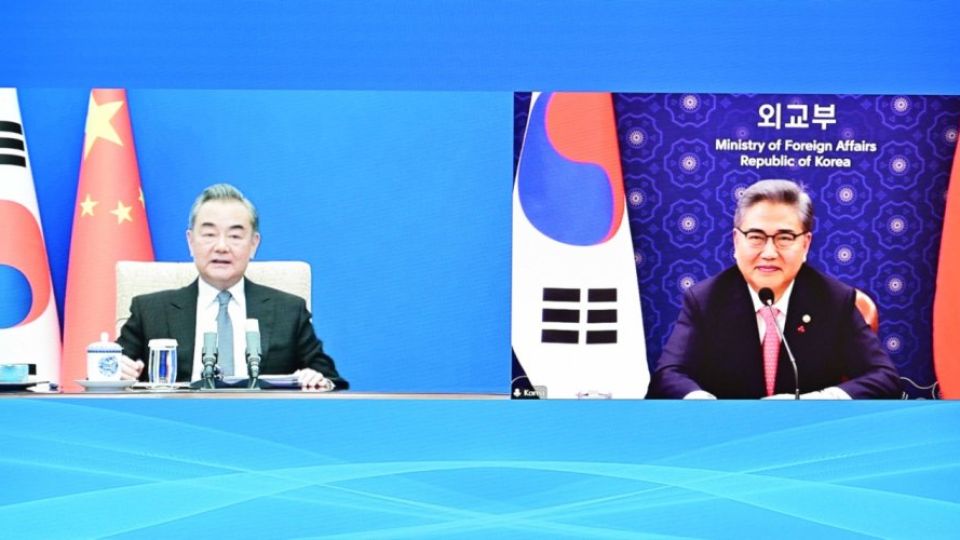December 14, 2022
SEOUL – China urged South Korea to join its rally against the US — Korea’s biggest ally — calling it a “rule breaker” in what many see as the lingering discord that is likely to hamper Seoul’s efforts to use Beijing’s support to resume the US-led nuclear talks on North Korea.
During a video conference held Monday, Chinese Foreign Minister Wang Yi told his Korea counterpart that the US Inflation Reduction Act, which offers subsidies for electric vehicles made there, violates international norms — a breach that calls for a united front on such “hegemonic unilateralism,” according to China’s Foreign Ministry.
Analysts said that the rebuke, aimed at driving a wedge between Seoul and Washington amid their efforts to engage Pyongyang, is the latest sign of divergent views South Korea and China maintain on containing North Korea. China, the North’s biggest ally, believes expanding sanctions on North Korea for its nuclear weapons program — a campaign backed by South Korea and the US — worsens the problem.
“And China won’t reverse the position and lend a hand to Seoul to help restart the nuclear talks, because Beijing is heavily invested in the tech fight with Washington. Lending support weakens the Chinese front,” said Cheong Seong-chang, director of the Center for North Korean Studies at the Sejong Institute.
Cheong dismissed the “constructive role” China said it would play in inter-Korean affairs, describing it as rhetoric that would yield little, if any, tangible progress on making the North return to nuclear talks, which last took place in October 2019. Pyongyang has since stepped up provocations, having conducted a record number of missile launches this year while rejecting any peace proposals floated by Seoul in the meantime.
The fact that South Korea holds no leverage over either China or North Korea renders any change in the state quo increasingly tricky, Cheong added, saying Seoul should go as far as making public a plan to arm itself with nuclear weapons if necessary. Such discussion, however, has yet to gain popular support.
Meanwhile, nuclear envoys from South Korea, the US and Japan met Tuesday in Jakarta, Indonesia, solidifying their commitment to working for a “completely nuclear-free” North Korea — a stronger united front on Pyongyang than their last meeting in Tokyo in September. At the time, the three-way alliance vowed “stern measures” in response to further North Korean provocations, though it did not reveal what those steps would look like.
The trilateral alliance has seen a rush to tighter ties since President Yoon Suk-yeol came to office in May. A conservative leader, Yoon believes in curbing North Korea’s nuclear ambitions even if that means forging closer ties with Japan; however, deeply rooted historical disputes make this a daunting task, as Yoon’s predecessor had difficulty delivering on the job. The two neighbors are at odds over compensating Koreans who were forced to work for Japanese companies during World War II.


